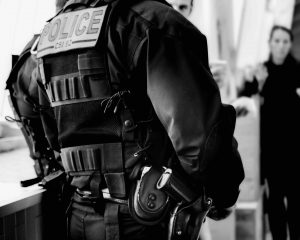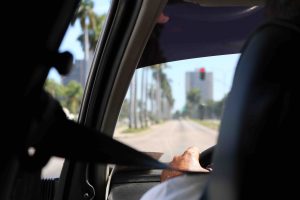 A police search without a warrant is illegal without consent. It is unlawful for a police officer to enter a person’s home or vehicle without a warrant, without consent, or without an exigent circumstance, such as seeing through a window or hearing domestic violence within the house. Additionally, it is unlawful for a law enforcement agent to coerce a person into consenting to a search, whether that coercion is expressed or implied. Furthermore, according to the Criminal Law Digest, “A defendant’s initial refusal to consent is an important factor in determining whether later consent is voluntary. The fact that defendant signed a written consent form is not dispositive in deciding whether consent was voluntary where circumstances show the consent was obtained through coercion.” This very scenario happened to a Chicago resident.
A police search without a warrant is illegal without consent. It is unlawful for a police officer to enter a person’s home or vehicle without a warrant, without consent, or without an exigent circumstance, such as seeing through a window or hearing domestic violence within the house. Additionally, it is unlawful for a law enforcement agent to coerce a person into consenting to a search, whether that coercion is expressed or implied. Furthermore, according to the Criminal Law Digest, “A defendant’s initial refusal to consent is an important factor in determining whether later consent is voluntary. The fact that defendant signed a written consent form is not dispositive in deciding whether consent was voluntary where circumstances show the consent was obtained through coercion.” This very scenario happened to a Chicago resident.
Fake Call of a Break-in Leads to Illegal Search and Seizure
Chicago police responded to an anonymous tip about a man growing marijuana in his residence. When the officers arrived at the residence, they found no one at home. They called the man with a fake story of a home break in, at which point the then suspect drove home and was confronted by the police officer. The defendant asked if the officer had a search warrant, which he did not. However the officer said that if the defendant did not sign a consent form right then and there, that he would be taken to jail, which would not have been lawful. And, if the defendant signed the form, he would not be arrested on that day. The defendant signed the consent search form, the officer found contraband, and he was arrested. The court found that the police officer had tricked, intimidated, and threatened the defendant, and that the voluntary consent form was not actually signed voluntarily. The court remanded for a new trial, reversed the conviction, and threw out all evidence from the illegal search.
 Chicago Criminal Lawyer Blog
Chicago Criminal Lawyer Blog












